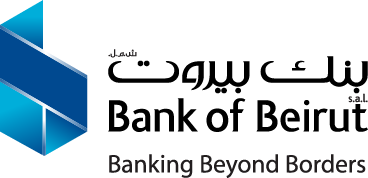Towards positivity on banks
11/06/2019
As talks on austerity proposals which aim to reduce the enormous budget deficit continue to dominate the headlines, we must not overlook the importance of protecting the banking sector and creating an attractive environment for investment.
With Lebanon suffering one of the highest levels of public debt in the world - approximately 150% of GDP - there is no doubt that the 2019 state budget must comprise drastic cost cutting measures to revitalize the economy.
Taxes on interest may repel deposits
The increase in the taxes on interest earned from banking deposits, approved by Ministers in early May, will lead to the opposite of the intended result. It will have an adverse effect and discourage investment of much-needed funds in Lebanese banks.
Despite the current rhetoric that suggests Lebanon is teetering on a precipice, and close to economic collapse, the monetary, banking and financial situation in Lebanon remains stable and I am optimistic that it will remain so.
To ensure that we stay on this positive financial track and in order to preserve a strong, sustainable economy, regulations in the banking sector that aim to attract deposits, rather than repel them, must be considered.
Banks will pay their share
While we are concerned over the negative impact additional taxation will have on banks’ growth and stability, this does not mean banks will not play their role in fixing the state’s finances. On the contrary, banks remain committed to contributing to the debt reduction project.
Lebanese banks have never been reluctant to offer their support to the state: in 2018 they paid more than $2 billion in taxes. However, tightening the noose around their necks through increased taxes will only serve to reduce their revenues.
Banks already pay a tax rate of 40percent to the state, in addition to a ten percent tax on distribution, compared to a tax of around 17 percent on other private sector companies. If tax rates are raised, small and medium banks could end up paying 75 percent tax, threatening the viability and sustainability of institutions that are vital to a strong national economy.
Small and medium –sized depositors will suffer the most
Those who will suffer most from increased taxes on deposits will be small and medium-sized depositors, who often rely on profit generated from their deposits in their day-to-day lives.
When it comes to larger investors, an increase in tax will compel them to consider other options and potentially take their business elsewhere, even overseas. This would have a devastating impact on the banks’ revenues.
Finally, we must take into consideration the non-resident depositors whose contributions are essential to maintaining a healthy banking sector, but who could easily find alternatives to investing their capital in Lebanon.
The solution
The solution? The revival of the “free banking zone”. This will attract the non-resident depositors through a targeted financial and economic policy by exempting them from additional fees and expenses when investing in Lebanon.
Of course, banks are always willing to lend a hand to the government and to contribute to the mammoth task that is the debt reduction project. However, the state’s request of banks to help out must be realistic and the banks’ contribution must be voluntary.
To guarantee objectivity, requests for assistance must be made in coordination with the Central Bank of Lebanon and the Association of Banks, who both play an important role in preserving the solidity of the sector. Without this coordination, the country’s sovereign credit rating will suffer even more than it already has.
Promoting our financial institutions
The government must continue to support the Central Bank of Lebanon, and not stifle it, as it is the backbone that supports the banking sector. The Association of Banks must also be strengthened as it is the balancing force between protecting the best interests of the Lebanese people and maintaining a productive banking sector.
We must promote our financial institutions instead of launching attacks on our economy. We must restore confidence in our country by promoting the strength of our institutions.
Our lawmakers must ratify policies that provide liquidity to the Lebanese market; stimulate and protect investments in national industries; reestablish confidence in our banks; reduce risk levels; lower interest rates on lending and reactivate the real estate sector.
We must continue to build on the strength of Lebanon’s banks, in that, to safeguard a strong and stable financial climate by creating a haven for foreign investors.
Dr. Salim Sfeir
Chairman – CEO Bank of Beirut
Bank of Beirut – List of Banks: 75 | Online banking services licensed by virtue of BDL letter number 11/629 dated October 2, 2008 | 2020 Bank of Beirut s.a.l. all rights reserved
Thank You for your feedack !
Virtual Tour
- A website accessible to the widest possible audience
- Bank of Beirut new and specialized website


























































